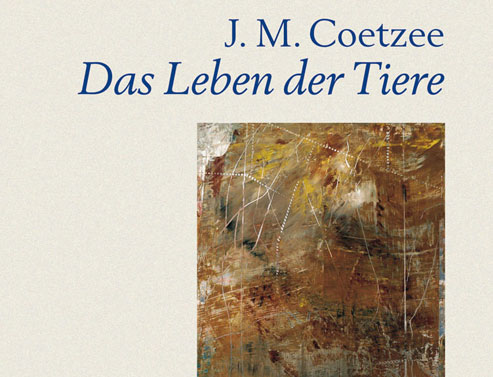Animal rights
Literature recommendations, links, essays, videos, statements, groups, projects and much more.
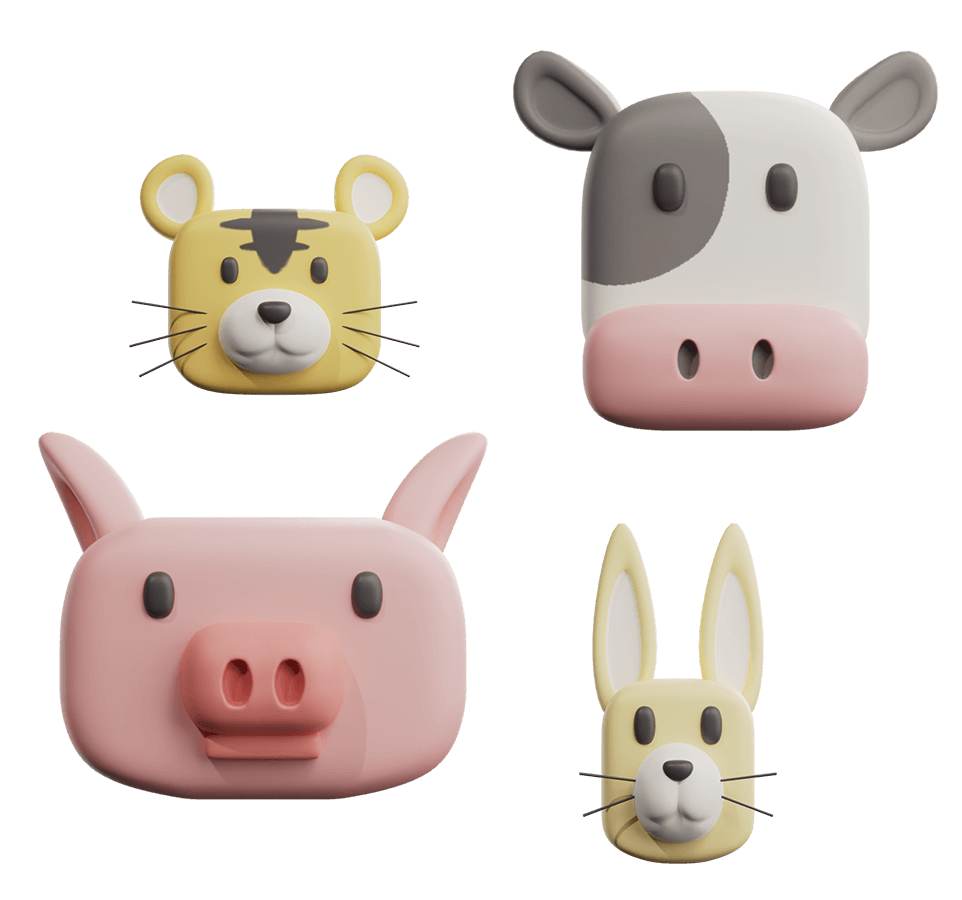

About Animal Rights.
On the following pages we would like to inform you about animal rights. The claim for animal rights differs from animal concerns. The claim for animal rights reaches much further.
If you are reading this you are most probably an animal lover, maybe even an animal rights activist. In this case you can feel empathy for other creatures.
Please take a moment and look closer to the relation between human beings and animals. It can be a personal gain for you.
The one who deals with the question, if humans have to respect the needs of animals, will quickly understand the enormous ethical dimension of the claim for animal rights. Due to that reason the protagonists of the animal rights controversy are often to be found in the field of philosophy.
So there’s the theoretical discussion on the one hand. But on the other hand there are practical consequences of human-animal relationship. And first of all we have to focus on those. Each person who wants to develop a serious and founded opinion has to know the status quo.
In this category:
- Literature references with short reviews
- Statements about current incidents in the animal rights scene
- Links to different groups, pages and projects
- Movies with short reviews
- Essays
General Declaration of Animal Rights
On the occation of the fiftieth anniversary of the ratification of the Universal Declaration of Human Rights in 1998, the English organization Uncaged published its declaration of animal rights. The idea of animal rights could hardly be phrased in a more suitable way.
Here are the introduction and a preliminary declaration of animal rights (in german only, sorry):
Universal Declaration of Animal Rights (UDAR) - 1998.
‘The ascription of moral and legal rights to animals, and their enshrinement in a United Nations Declaration of Animal Rights is a logical and inevitable progression of ethical thinking.’
On December 10th 1948, the United Nations General Assembly ratified the Universal Declaration of Human Rights. The Declaration enshrined the principle that human beings could no longer be treated in law or public policy as mere tools of the powerful or subjects of the state, but that they possess inherent value, and must be permitted to live their lives according to the priorities they themselves identify, in so far as they do not infringe the rights of others. The ratification of the UDHR symbolised the triumph of humanitarianism in the aftermath of the most destructive war in human history, at the midpoint of what had already become the most destructive century in human history.
However partial and inadequate our implementation of the principles of human rights has been since 1948, the UDHR marked the beginning of a new era in human morality and rhetoric, in which compassion, justice and the rights of the individual finally came to assume precedence over the dictates of power.
As December 10th approaches, we salute the vision of those who framed the Declaration of Human Rights, and the efforts of all those who have sought to turn that ideal into reality. We acknowledge the responsibility upon us all to challenge and overcome the abuse of human rights throughout the world, but we also believe that the greatest tribute that can be paid to the idealism of 1948 is to acknowledge the limitations of our own ideals, and to seek to shape the morality of our own future in the same way as the framers of the Declaration of Human Rights in their time.
We believe that the future belongs neither to the entrenchment nor the consolidation of the ideals of 1948 but to their extension. Specifically, we believe that the time has come to recognise the moral imperative to include non-human animals within the sphere of protection that the Declaration establishes. The human race has long recognised that animals are not merely the instruments of our desires or will, and that the reality of their capacity to experience pleasure and pain, happiness and suffering, compels us to recognise that moral limits must apply to our treatment of non-human as surely as to human.
The ascription of moral and legal rights to animals, and their enshrinement in a United Nations Declaration of Animal Rights is the logical and inevitable progression of this principle. We introduce, therefore, the Universal Declaration of Animal Rights:
- Inasmuch as there is ample evidence that many animal species are capable of feeling, we condemn totally the infliction of suffering upon our fellow creatures and the curtailment of their behavioural and other needs save where this is necessary for their own individual benefit.
- We do not accept that a difference in species alone (any more than a difference in race) can justify wanton exploitation or oppression in the name of science or sport, or for use as food, for commercial profit or for other human ends.
- We believe in the evolutionary and moral kinship of all animals and declare our belief that all sentient creatures have rights to life, liberty and natural enjoyment.
- We therefore call for the protection of these rights.
The exploitation of animals by human beings is as deeply entrenched in human culture this century as the exploitation of our fellow human beings was in the last century. The progress in human rights that characterised the 20th and 21st century would have appeared no less radical to our ancestors than the abolition of animal exploitation appears now. All such exploitation predates any question of animal or even human rights, and it is our responsibility to seek moral guidance not in tradition or familiarity but in the enlightened principles of justice and compassion that have shaped the ideals of our own time. The assumption that animals cannot have rights because we have not yet given them rights belongs to the past. We must seek the truth with open minds, and in the full consciousness that the future has always belonged to those with the courage and vision to question the received wisdom of their day. Today, fifty-three years after the formal establishment of the rights of human beings, the time is right to bring this argument forward.
The differences between homo sapiens and other animals are legion, but evolution teaches us that we are, at a fundamental level, bound by profound similarities. Genetically almost indistinguishable from our closest primate relatives, human beings are not the pinnacle of evolution, but one tiny branch on its great tree.
The lesson of evolution is that we should expect commonalities between human and non-human in almost every respect.
Science, as much as experience, teaches us that it is no longer possible to assume that animals are mere machines, or bundles of instinct and reflex: they may flourish in freedom or languish under oppression just as we do. We may no longer seek refuge in ignorance.
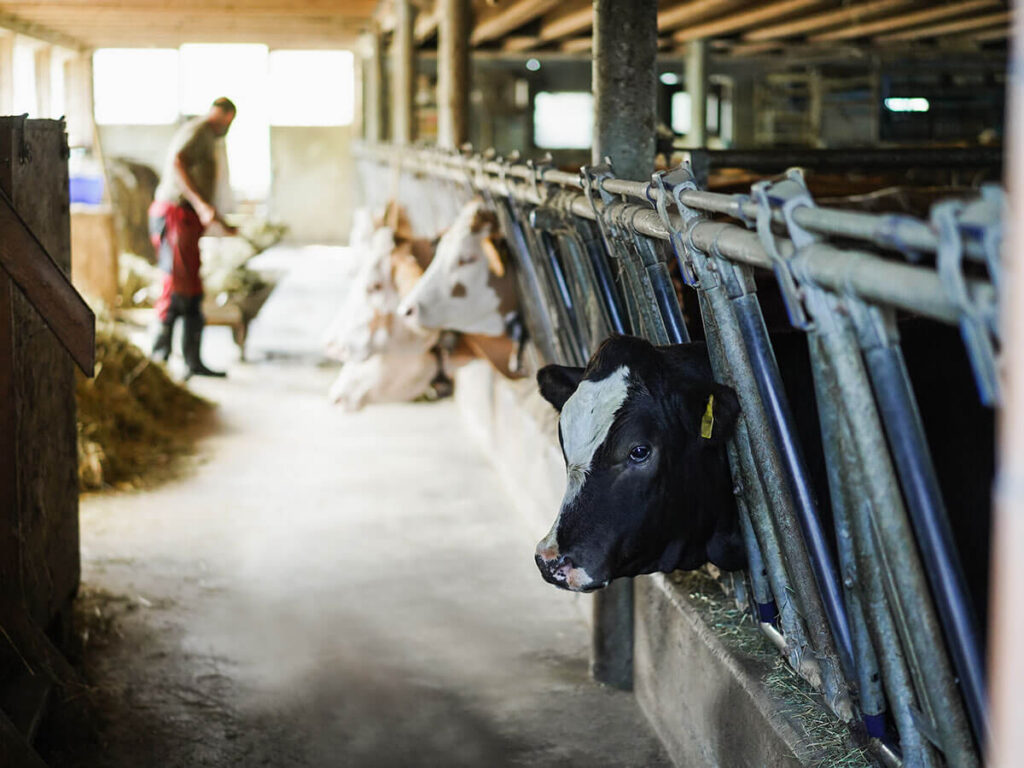
Animals may not be able to express their interests in our language, or explicitly claim their rights from us, but the existence of their interests is beyond question.
All animals seek to protect their own lives, preserve their freedom, seek what gives them pleasure and avoid what gives them displeasure or pain – in short to live their lives according to their own priorities. More than this, animals possess and express distinguishing characteristics as individuals. In all these respects, they are akin to human beings, however greatly the details of their lives may differ from ours.
If animals suffer pain, and seek to protect their own lives, freedom and pleasures just as we do, on what basis can we continue to deny them the protection that rights grant to our lives, freedom and pleasures?
It is claimed that animals forfeit the privilege of rights because they lack our intelligence, our emotional bonds or our sense of morality, or because they cannot accept the responsibilities incumbent on the members of society. While few would deny that almost all humans possess these capabilities to a far greater extent than animals, why this should deny animals protection from exploitation or harm has never been established. Many human beings also lack these qualities: the very young or those suffering from mental impairments as a result of illness, congenital handicap or injury. We rightly recognise that these human beings deserve not less protection but more protection: not the denial of their rights, but the reinforcement of them. We owe a special responsibility to those who are unable to reap the advantages of full participation in human society, and who are unable to defend their own interests effectively. To apply opposite principles to human and non-human in this regard is to be guilty of unjustifiable discrimination.
Animals have been denied rights not because of any meaningful or relevant distinction between human and non-human, but for the same reason that human beings have been and continue to be denied rights: because ascribing them rights threatens the freedom of those in power. The rights of human beings have been won at the expense of the privileges of the rich and the powerful, and in the face of their resistance. The source of resistance to this emancipation of animals is not reason or justice, but a false notion of human self-interest.
Ultimately, the rights of animals threaten the freedom of some human beings to use them as they see fit, or to further their own particular ends. The arguments against the rights of animals withstand neither logical nor ethical scrutiny because they are the rearguard action of a defeated, specious philosophy.
The pretence that human affairs exist in isolation from those of all other living creatures on our planet is no longer sustainable. Evolution teaches us not arrogance but humility, and the greater follies of our technological century serve to reinforce the lesson that the natural world is neither our property or our servant. The further pretence that the exclusion of others from the benefits of compassion and justice can be justified by our status as the dominant species is untenable. Power is no longer the measure of moral worth. That is the lesson of our age.
Just as the framers of the Universal Declaration of Human Rights acted both in the long established philosophical traditions of the Enlightenment and in response to the horrific events of the first part of the twentieth century, so the framers of the Declaration on Animal Rights were motivated both by the humanist philosophical tradition and by the unprecedented nature and extent of animal exploitation at the end of the 20th Century.
Factory farming, the destruction of the natural environment and the introduction of novel scientific procedures such as cloning and xenotransplantation represent abuse of the lives and interests of animals unimaginable even half a century ago. The coexistence of the recognition of the principle of individual rights for human beings and of the institutionalised abuse and exploitation of individual animals on a global scale represents an ethical challenge that can no longer be ignored, and which, we believe, will determine the progress of morality and, inevitably, civilisation in the coming century.
The Declaration of the Rights of Animals is as much a statement of intent as it is of principle. We marked the fiftieth anniversary of the original Declaration by announcing our intention to achieve the aim of enshrining the rights of animals in the policy of the United Nations by the centenary of that date, the 10th December 2048. The challenge facing human society is to redefine our understanding of progress such that our recognition and protection of the rights of animals is as much a barometer of our level of civilisation as our recognition and protection of the rights of human beings. The evolution of human civilisation, its principles as well as its practice, will not end with the twentieth century: the citizens of the coming century, who are the children and young people of today, will not fail to grasp the opportunity to mark the moral progress of their time as we have defined ours. The future is theirs but it begins with us, today.
Links & Gruppen
Animal testing
The database of animalsliberty gives a comprehensive overview of animal testing, products and protagonists. Under the simple slogan “who does what” is listed by company, brand and product groups, who commissions which animal experiments or conducts them themselves.
Films & Projects
Earthlings
When searching for commentaries on this movie you will often find reviews claiming that it deals with the consumption of meat and with livestock management (e.g. Wikipedia). Youtube suggests that the contents could be inappropriate for users. I doubt that these critics have ever seen the whole movie and understood it.
Earthlings is a movie about humans. It shows how we act, what we tolerate and what we directly or indirectly promote by consuming things and especially: what we are willing to accept for our convenience, habits and entertainment. Earthlings sugarcoats nothing.
In fact, for me this movie has always been a plea. An appeal to everyone to rise up, pay attention and take action. But in spite of all clarity, it is also a silent plea to pay attention to one’s values and to show compassion.
So take 90 minutes of your time to watch and listen closely. We provide a link to the German version, which does not sound quite right here and there. Joaquin Phoenix, an American animal rights activist and actor, narrates the English original. Moby made the soundtrack. Nation Earth produced Earthlings and promoted the movie through the webpage www.earthlings.com. Even though the long announced second part Unity is still to be published, Earthlings can be rightfully described as one of the most important movies in the field of animal rights.
The following quote from George Bernard Shaw is from the last century:
‘The worst sin towards our fellow creatures is not to hate them, but to be indifferent to them: that’s the essence of inhumanity’.
There is nothing to add to it. You can begin to make a change here and now.
One oft he most beautiful movie trailers ever:
Dr. Steven Best
Dr. Steven Best is a US-american philosopher and animal rights activist. He is professor for philosophy at the University of Texas in El Paso. In late 2011 he held a lecture in Saarbrücken for the TVG Saar (cf. the link below; the video is subtitled in German).
Due to his support fort he ALF (Animal Liberation Front), Dr. Best is a controversial but intellectually outstanding representative of our future. In his lecture the thought-provoking speaker and activist wants to create an interest in his theses, which are deliberately provoking. They are not to be dismissed readily and they require an in-depth examination of animal rights topics. In his contributions, Best is never eager to find balance or compromise; rather, polarization is the aim.
Dr. Steven Best discusses the self-image and self-concept of humans – a highly interesting analysis of the question what constitutes human nature and how we see ourselves. What role do reason and rationality play, which supposedly make us the crowning glory of creation? Best’s lecture has a philosophical claim without becoming overly complex. He does not try to impress listeners through specialist knowledge and terminology, but with clear words and understandable logic. This lecture definitely deserves a larger audience.
Soylent network
Soylent network are webpages created by Dirk Gießelmann. He skilfully deals with the ethical and moral conflicts related to the relationship between humans and animals. His work lead to projects such as “Think-Baby-Think” or “Soylent Weiß”. Soylent network is a cinematic confrontation with so-called livestock. The perspectives Dirk Gießelmann captures are captivating.
Gary Yourofsky
Gary Yourofsky, an animal rights activist, was banished from several US-states for his activities. He gives lectures at schools and universities about veganism. He not only examines ethical but also health-related issues. What marketing-driven stories does the dairy industry tell? Why does TV advertising for nutrition only advertise meat, milk and cheese? And why do countless calcium supplements exist when we supposedly take in calcium through cow’s milk?
This and more is discussed in the video. It is the original, English language recording including German subtitles. We want to point out that the lecture includes videos from slaughterhouses, showing grave abuse of animals. But when the urge to look away arises, one should ask oneself (as Gary Yourofsky himself points out) :’If it is not good enough for my eyes, why should it be good enough for my stomach?’
Only books that have been read by us are listed, we don’t list upon recommendations of others
Literature
Our Literature recommendations
These literature recommendations are all more or less focused on animal rights. They either deal specifically with that subject or address related topics. Short reviews follow step by step. Our goal is not completeness, but if essential books are missing, please inform us. Only books that have been read by us are listed, we don’t list upon recommendations of others.
Some are in german, others in english.
Peter Singer, “Animal Liberation: The Definitive Classic of the Animal Movement”
(Rowohlt, ISBN 978-3499199103)
The classic of animal rights literature. The first edition was published over 30 years ago and is not less relevant today. Singer’s theses are not uncontroversial, the reader should be able to think in abstract terms. Never the less Singer is probably the first who focused on the concept of animal rights from various angles. A must-read for everyone who cares about this topic.
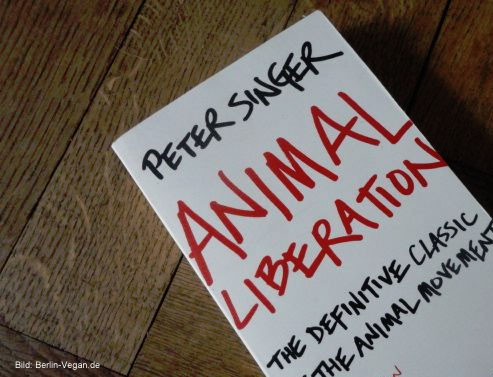
Melanie Joy “Why We Love Dogs, Eat Pigs, and Wear Cows: An Introduction to Carnism”
(Compassion Media, ISBN 978-3981462173)
One of my favorite books. Melanie Joy is an U.S.-American sociologist who invented the term ‘carnism’. Joy explains both the sociological and the psychological contexts and mechanisms that bring us human beings to our paradoxical treatment of animals and our toleration and definition of violence. Finest brain food. Even for well-read animal protectionists a very interesting perspective, which contributes much to the understanding of our states.

Jonathan Safran Foer “Eating Animals”
(Back Bay Books, 978-0316069885)
An outstanding literary work, which can be best described as a hybrid of non-fiction and autobiography. For the first time a book on the moral dimension of the food has reached such widespread impact. Suitable for persons who are aware of their responsibility and want to get more information about this topic.
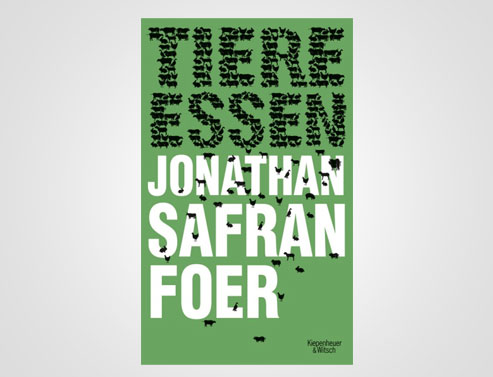
John Robbins “Diet for a New America”
(Stillpoint Pub, ISBN-13 978-0913299548)
Actual John Robbins should have been the heir of the Baskin-Robbins ice cream empire. But he decided against this and became one of the most popular authors for vegan diet books. His commitment is outstanding and his books are bestsellers. ‚ Diet for a New America’ is nearly thirty years old but seems more topical than ever. John Robbins writes very moving and shows up a way for a better world.

John Robbins „Food Revolution“
(Conari Press, ISBN-13: 978-1573244879)
This book bases on his debut and demonstrates countless aspects of a plant-based diet. Robbins illuminates our handling of animal foods from a variety of perspectives. His book is full of anecdotes and interesting details. ‘Food Revolutin “is an entertaining book.
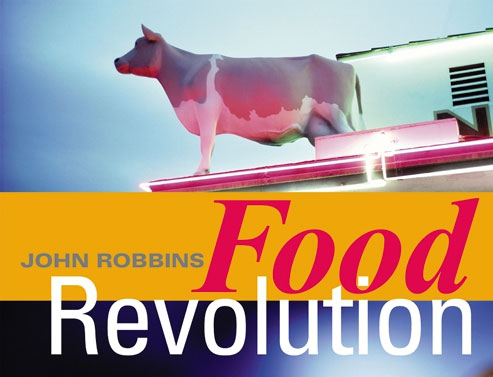
John Robbins „Letzter Ausweg vegan“
(Nietsch, ISBN 978-3862642205)
John Robbins’s latest creation. The well-known theme is complemented by the latest developments and research results. A short manageable book for all who want to keep up to date.
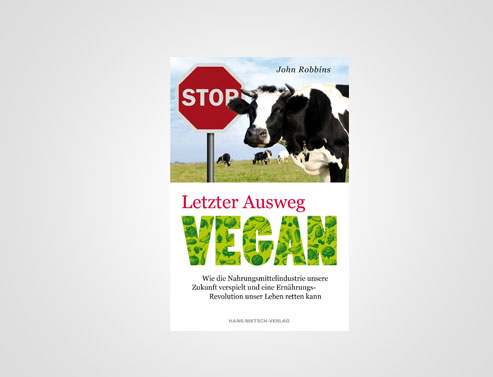
Dr. Steven Best „Totale Befreiung“ Eine Revolution für das 21. Jahrhundert
(EchoVerlag, ISBN 978-3926914576)
Best ist für klare Worte bekannt und macht in dieser Hinsicht seinem Namen mit diesem Buch alle Ehre. Polarisation ist nicht erst seit seinem öffentlichen Bekenntnis zu den Aktionen der ALF Programm. Sein jüngstes Buch ist mit Blick auf das Massensterben von Arten, dem fast unvorstellbaren Ausmaß an Tierausbeutung und der überall stattfindenden ökologischen Katastrophe der Aufruf zu einem neuen und radikal veränderten Denken und Handeln. Das 21. Jahrhundert wird der Wendepunkt sein oder das Ende unserer Entwicklung. In Teilen ist dieses Buch eine Gereralkritik an linken Bewegungen, Veganern, der Tierrechtsszene und vielen anderen Formen von herrschafts-, hierarchie- und kapitalismuskritischen Gruppen. Best bemängelt die Beschränktheit der Sichten und fordert zu Allianzen auf. Lesern, die Best nicht näher kennen, sei empfohlen, das Buch auch dann zuende zu lesen, wenn sie sich in der ersten Hälfte durch die radikale Sprache und die (intellektuell brilliante) Gewaltdiskussion abgestoßen fühlen. Sie werden im zweiten Teil belohnt durch eine visionäre Sicht auf unsere Möglichkeiten und Potenziale und durch eine analytische Sicht auf unseren Zustand und unsere Zukunft. Ein anderer Aufbau hätte das Buch sicher breiteren Kreisen zugänglich gemacht – aber es bleibt ein klares Fazit: Klar und deutlich, schonungslos, radikal und ein offener Aufruf zum Handeln. Best at it’s best…
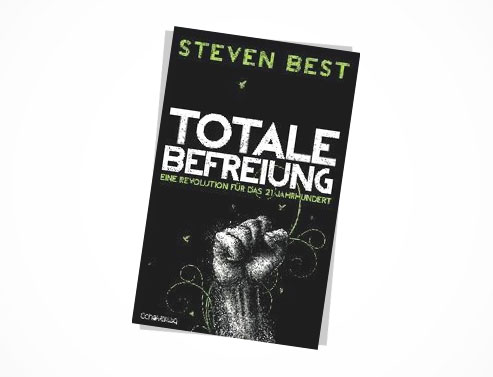
Campbell / Campbell „China Study“
(BenBella Books, ISBN-13 978-1932100662)
The subtitle of the book reads “The scientific justification for a vegan diet” and that is true indeed. The scientific claim is being implemented in an understandable way and placed in an interdisciplinary context which also takes into account the political motivations of the flesh-focused society. Compulsory reading.
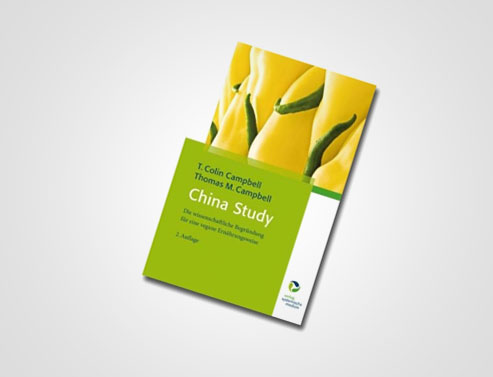
Tom Regan „The Case for Animal Rights“
(University of California Press, ISBN 978-0520243866)
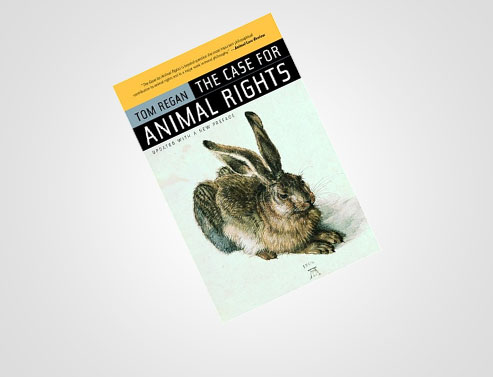
Tom Regan „Defending Animal Rights“
(University of Illinois Press, ISBN 978-0252074165)
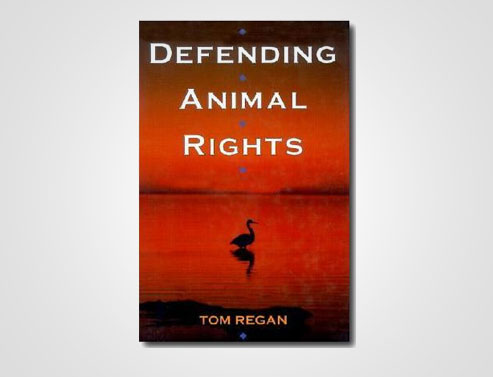
Nina Messinger „Du sollst nicht töten!“ Plädoyer für eine gewaltfreie Ernährung
(Smaragd, ISBN 978-3941363472)
Die Autorin brauchte etwas, um warm zu werden. Die ersten 15% lesen sich wie eine arg vereinfachte Argumentationssammlung der aktuellen Tierrechtsstandpunkte. Dann allerdings folgt ein Interview mit Christian Opitz und das Buch nimmt inhaltlich Fahrt auf. Insgesamt ist es eher ein für jedermann verständlicher Rundumschlag über alle Themen der Tierrechts- und Veganismusdebatte. Großer Pluspunkt: im Buch sind mehrere interessante Interviews verarbeitet. Gut für Einsteiger in das Thema geeignet, aber kein „must have“.
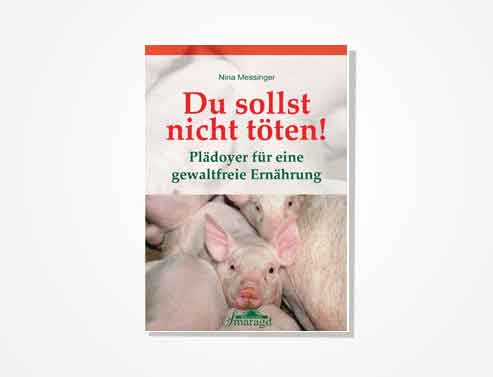
Daniela Friedl „Mitleid unangebracht“ vegan leben in Österreich
(tredition, ISBN 978-3842445796)
Ich liebe dieses Buch, aber wenn ich ehrlich bin, weiß ich nicht, für wen das geschrieben ist. Die Autorin schreibt autobiografisch, berichtet aus ihrem Alltag, verknüpft mit guten Sachinformationen, verziert mit schönen Zitaten und bebildert das Buch hübsch. Daniela Friedl hat einen sehr angenehmnen Schreibstil, des Lesen macht einfach einen riesengroßen Spaß. Nach dem Schließen des Buches ist man ein Stück mehr motiviert, seinen tierfreundlichen Lebensstil konsequent umzusetzen und man macht das mit einem Lächeln im Gesicht. Viele werden sagen, dass dieses Buch überflüssig ist, weil es nichts Neues enthält – ich empfehle: kaufen und lesen, weil es der Seele einfach unglaublich gut tut…
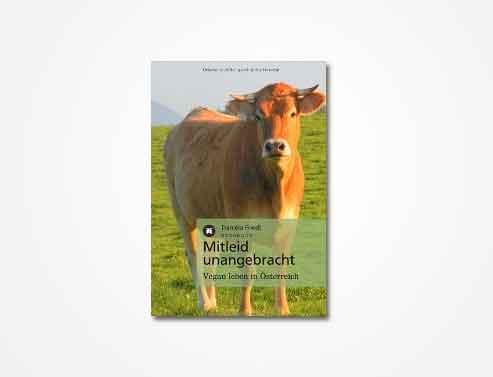
Alexander Bulk „Schweinchen Hugo reißt aus“
(compassion media, ISBN 978-3-9814621-3-5)
Ein Kinderbuch der anderen Art. Erzählt wird die Geschichte vom Schweinchen Hugo und seiner Freundin Matilda. Hugo quält die Frage, was wohl außerhalb des Stalls ist und fragt sich, warum der Bauer ihn nicht herauslässt. Auf Matilda und die anderen Tiere warten bei ihrer Suche nach Antworten auf ihre Fragen einige Abenteuer und Gefahren. Das Buch erzählt in kindgerechter Weise eine Geschichte von Neugierde, Freiheit und über die Angst vor dem Ungewissen. Allerdings wird hier nicht das naive Bauernhofideal städtischer Bewohner vermittelt, wie man es üblicherweise in Kinderbüchern findet.
Neben der eigentlichen – fiktiven – Geschichte finden sich im Anhang echte Geschichten von Schweinen, die auf Lebenshöfen leben.
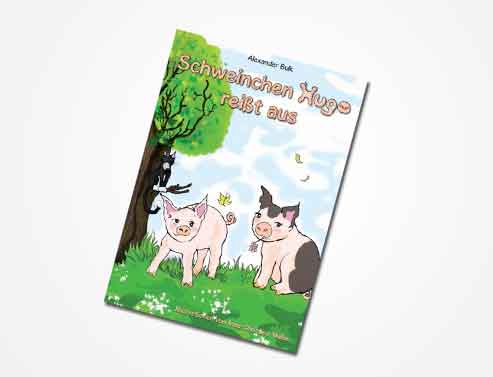
Jan Bredack „Vegan für alle“
(Piper, ISBN 978-3492056304)
Ein ehemaliger Mercedes-Manager gründet das Veganz, den ersten veganen Supermarkt Deutschlands. Das Buch ist in weiten Teilen autobiografisch und gibt interessante Einblicke in die soziologischen und psychologischen Strukturen modernen Managements (nicht nur) großer Konzerne und dem Willen einiger weniger, dieses Biotop hinter sich zu lassen. Bredack beschreibt ausführlich seine Beweggründe sowohl das eine Leben hinter sich zu lassen und auch das andere Leben neu aufzubauen. Es ist eher leichte Lektüre, die aber dennoch einen nachdenklichen Leser zurücklässt. Zum Ende des Buchs hin, kommen einem Zweifel auf, wie unsere Gesellschaft heute mit ihren Maximen überdauern kann, wenn wir den Wechsel nicht hinbekommen. Bredack selbst ist jedoch ein Zeuge dafür, dass es dennoch möglich ist. Insgesamt ein Buch, das Mut macht, anzupacken.

Rüdiger Dahlke „Peace Food“
(Gräfe und Unzer, ÎSBN 978-3833822865)
Dieses Buch ist mehr ein Plädoyer eines Ganzheitsmediziners als eine tierrechtliche Lektüre. Dahlke nimmt starke Bezüge auf die China Study und erklärt aus seiner beruflichen Praxis als Arzt die Zusammenhänge zwischen Ernährung und Gesundheit. Darüber hinaus stellt er seine Theorien über die Zusammenhänge mit der Seele des Menschen dar und begründet vieles klar wissenschaftlich, manches mutet dagegen etwas esoterisch an. Insgesamt ist es aber eine lesenwerte Mischung, die an keiner Stelle belehrend wirkt. Dahlke gibt starke Denkansätze und bietet Lösungsmöglichkeiten an. Wie so oft in Büchern dieser Art, finden sich einige Rezepte am Ende des Buches – in diesem Fall jedoch wirklich wundervolle. Lesenswert auch für Leser, die einen Einblick in hormonelle Ursache-Wirkung-Beziehungen und in den Stoffwechsel des Menschen haben möchten.

Charles Patterson „Für die Tiere ist jeden Tag Treblinka“
(Zweitausendeins, ISBN 978-3861506492)
Der Titel des Buches ist ein Zitat von Isaac B. Singer, dem einzigen jiddischen Schriftsteller, der bislang den Literatur-Nobelpreis erhalten hat. Patterson schreibt über die Ursprünge des industriellen Tötens, über die Analoga, die der Holocaust mit der Tierhaltung und Tierschlachtung aufweist. Patterson macht deutlich, dass ein Vergleich mit dem Holocaust nicht nur statthaft sondern sogar geboten ist. In dem Buch werden viele Überlebende des Naziregimes zitiert, denen selbstverständlich nicht an einer Gleichsetzung gelegen ist. Es ist ein verstörendes Werk, das aber aufrüttelt und deutlich zeigt, wie emotionale Abstumpfung zur Verwahrlosung wird, wie solche Mechanismen funktionieren, die – je nach Anwendung – in ihrer jeweiligen Katastrophe enden. Pflichtlektüre, insbesondere für kritische Leser, die grundsätzlich ein Problem mit Holocaustvergleichen haben.

Antoine F. Goetschel „Tiere klagen an“
(Fischer, ISBN 978-3596191000)
Der Titel ist wörtlich gemeint, denn der Autor war Tieranwalt in Zürich und hat dort stellvertretend für seine Klientel deren Rechte vertreten. Er war maßgeblich daran beteiligt, dass in der Schweiz als einiziger Nation der Welt die Würde des Tieres Verfassungsrang hat. Wie wichtig das für die Zukunft sein wird, erläutert Goetschel durch die Beantwortung von zehn Fragen. Dieses Buch sei jedem ans Herz gelegt, der meint, dass die rechtliche Situation hinsichtlich der bestehenden Dramatik keine Rolle spielt. Er erläutert sehr anschaulich und für juristische Laien verständlich, warum auch dieses Feld der Tierrechtsbewegung unverzichtbar ist. Es werden nicht nur ethische Dillemmata thematisiert sondern auch praktische Ratschläge gegeben. Zudem schärft das Buch auch die Einsicht in die Notwendigkeit der Instanzenwege. Pflichtlektüre.
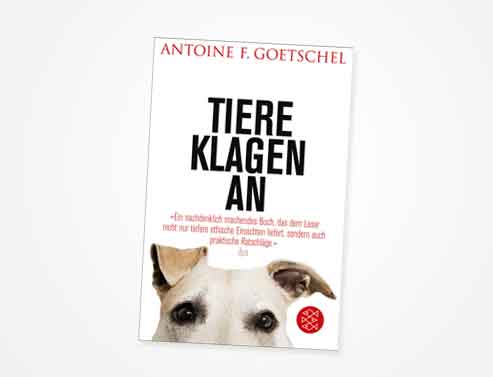
Andreas Grabolle „Kein Fleisch macht glücklich“
(Goldmann, ISBN 978-3442173167)
Der Autor beschreibt seinen Weg der Auseinandersetzung mit dem Fleischkonsum. Es beginnt mit einem Selbstversuch und endet mit voraussehbar klaren Erkenntnissen. Was wir essen, ist keineswegs gleichgültig. Grabolle ist kein Dogmatiker, zeigt aber in einer gut geschriebenen Zusammenfassung auf, wo die realen Probleme heute liegen. Gut recherchierte Inhalte werden ergänzt durch die wesentlichen Zahlen, die es in diesem Zusammenhang zu nennen gibt. Kein „must have“ aber eine sehr gut komprimierte Darstellung des Status Quo.
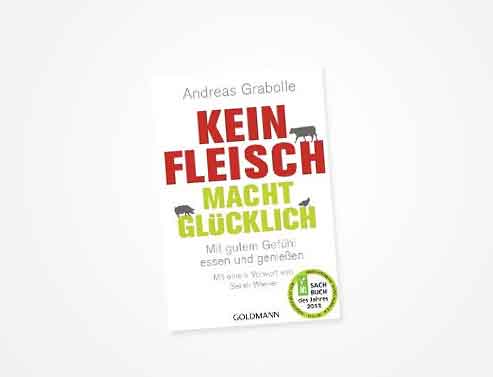
Hilal Sezgin „Artgerecht ist nur die Freiheit“
(C.H. Beck, ISBN 978-3406659041) ‚Eine Ethik für Tiere oder: Warum wir umdenken müssen‘
Die Autorin setzt sich mit den aktuellen tierrechtlichen Positionen intensiv auseinander. Sie strukturiert das Werk mittels fünf Fragen: Grundsätzlichen Erläuterungen über die Ethik schließen sich die Fragen, ob wir Tiere quälen, töten bzw. nutzen dürfen an und enden schließlich mit die Frage, wie wir mit Tieren leben können. Hilal Sezgin besticht durch intellektuellen Anspruch ohne verkopft oder theoriegetrieben zu sein. Das Buch ist anspruchsvoll und leicht lesbar zugleich, der Autorin ist diese Gratwanderung mit Bravour geglückt.
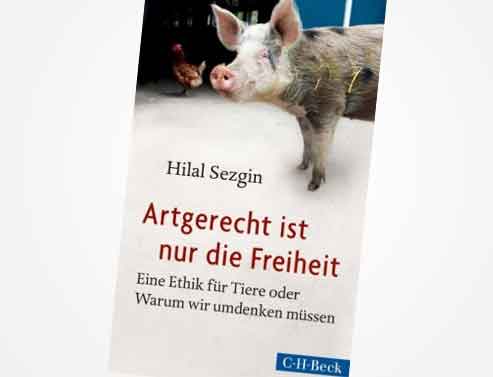
Urlich Seifert „Vegetarier – Gottlose Ketzer?“
(Gabriele-Verlag, ISBN 978-3892013457)
Für Atheisten handelt es sich hier um eine eher schwierige Lektüre. Theistisch gebildete Personen haben aber sicher einen guten Zugang über die zitierten Fundstellen, die Haltungen und Diskussionen mit christlich-religiösem Hintergrund. Spannend ist aber, dass sie die mitunter harte, aber begründete Kritik des Autors an den kirchlichen Positionen, auf einer Innensicht beruht. Hier findet eine Auseinandersetzung statt, die sich gegen einen autokratischen Führungsanspruch stellt. Aus dem Grunde kann dieses Buch auch für Menschen ohne christlich-religiösen Anker lesenswert sein (anlesen sinnvoll).
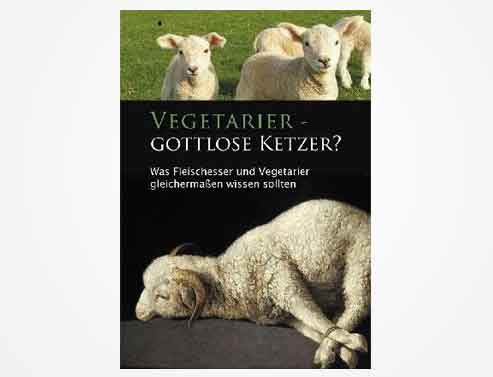
Helmut F. Kaplan „Der Verrat des Menschen an den Tieren“
(Vegi-Verlag, ISBN 978-3909067060)
Kaplan ist ein Verfechter der „einfachen Ethik“, um sich nicht in theoretischen Modellen und komplizierten Konstruktionen zu verfangen. So klar diese Ausrichtung ist, so deutlich sind auch seine formulierten Standpunkte. Kaplan ist unbequem, direkt und provozierend.
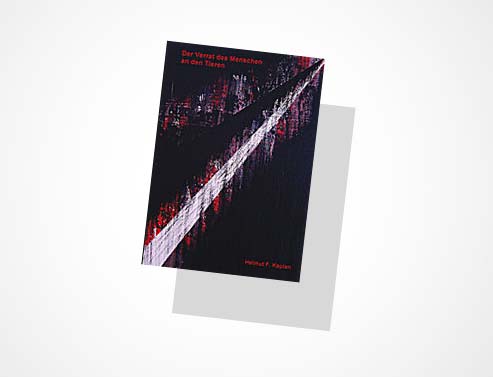
Helmut F. Kaplan „Tiere haben Rechte. Argumente und Zitate von A – Z“
(Fischer, ISBN 978-3891311189)
Insbesondere für Neulinge des Tierrechtsthemas ist dieses eine interessante Zusammenfassung der gängigsten Themen und Standpunkte.

Karen Duve „Anständig essen. Ein Selbstversuch“
(Goldmann, ISBN 978-3442476473)
Ein unterhaltsames Buch über die Selbstversuche der Autorin. Geeignet für Zweifler aber auch für Schmöker-Leser. Dieses Buch hat wenig tierrechtliche Aspekte, beschreibt jedoch schön eine typische Entwicklung und die Konflikte von Menschen mit sich selbst und ihrer Umwelt, die sich mit den ethischen Dimensionen der Ernährung auseinandersetzen.
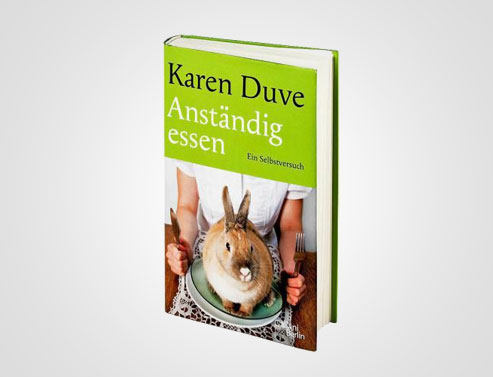
Tolstoi, Wichmann u.a. „Das Schlachten beenden. Zur Kritik der Gewalt an Tieren.“
(Graswurzelrevolution, ISBN 978-3939045137)
Bei diesem Buch handelt sich um eine Zusammenstellung in erster Linie anarchistischer Texte. Es ist höchst spannend zu lesen, wie intensiv diese Form der Gewaltdiskussion auch mit feministischen und anderen linkssozialistischen Denkern verknüpft war. Tolstoi ist ein diesem Zusammenhang ein höchst delikates Stück Literatur. Den Texten mangelt es ein wenig an Überleitungsbauplan in die Gegenwart, aber diesen Anspruch hat die Textsammlung auch nicht. Als Horizonterweiterung sehr zu empfehlen, wenn auch in Teilen etwas zäh zu lesen.

Dr. Karl-Heinz Loske „Von der Jagd und den Jägern. Bruder Tier und sein recht zu leben.“
(Monsenstein und Vannerdat, ISBN 978-3865823724)
Loske – selbst in jungen Jahren ein Jäger – beschreibt in eindrucksvoller Weise die grundlegenden psychischen Konstruktionen von Jägern. Dennoch ist dieses Buch mitnichten nur ein Psychogramm, die Argumente sind allesamt wissenschaftlich biologisch gut unterlegt. Es ergibt sich ein Lesestoff, der zwischen biologischen Fakten, naturnahem Denken und psychologischen Einschätzungen schwebt. Sicher nicht jedermanns Sache, aber dieses Buch erlaubt einen Blick auf die Jäger aus einer einmaligen Perspektive: Nämlich der eines Mannes, der sich gewandelt hat und kritisch die Grundhaltung der Jäger analysiert und an vielen Stellen mit wissenschaftlicher Genauigkeit bloßstellt.

Hal Herzog “Wir streicheln und wir essen sie. Unser paradoxes Verhältnis zu Tieren.”
(Hanser, ISBN 978-3446429222)
Dieses Buch gehört eigentlich nicht in die Sammlung der Tierrechtsliteratur, aber es ist in vielerlei Hinsicht eine Offenbarung. Hal Herzog zeigt viele Eigenheiten, Wiedersprüche und Merkwürdigkeiten in der Mensch-Tier-Beziehung auf, dass sich der Leser wie in einem Minenfeld der Ethik bewegen muss. Ein Fundus für jeden, der ständig Herausforderungen in der Argumentation sucht. Viele Aspekte klären den Blick darauf, wie viele Menschen denken und wieso das Verhältnis der meisten Menschen zu den Tieren absurd und paradox ist. Für alle, die daran arbeiten, dies zu ändern, ist dieses Buch ein Wissensquell.
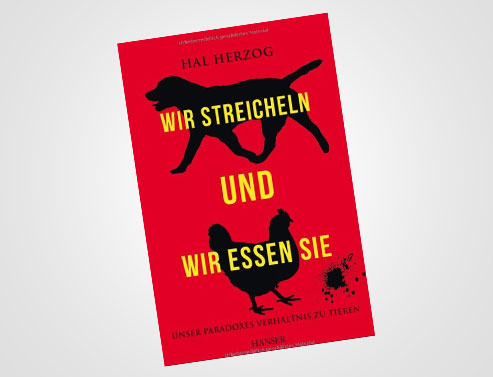
Corina Gericke “Was Sie schon immer über Tierversuche wissen wollten”
(Echo, ISBN 978-3926914538)
Dieses Buch ist schon aufgrund seiner Nüchternheit nichts für schwache Nerven. Präzises Fachwissen, journalistisch sehr gut recherchiert und schließlich verständlich erläutert – das ist die Quintessenz. Für jeden geeignet, der noch einen Zweifel an der Forderungen der Abschaffung von Tierversuchen hegt – oder eine erstklassige Argumentationsgrundlage sucht. Corina Gericke hat mit der überarbeiteten zweiten Auflage eine umfassende Antwort auf die Frage nach Tierversuchen gegeben.

Hermann Focke “Tierschutz in Deutschland: Etikettenschwindel?!”
(Pro Business, ISBN 978-3939430933)
Focke ist ehemaliger Veterinäramtsleiter und beschreibt präzise die Zusammenarbeit zwischen industrieller Tierproduktion und Behörden. In Teilen wegen der sehr genauen Darstellung etwas langatmig zu lesen, ist dieses Buch dennoch ein Augenöffner bezüglich der Praktiken des Gesetzgebers. Nach der Lektüre sehen Sie das Tierschutzgesetz mit anderen Augen oder erkennen es als das, was der Buchtitel besagt: als Etikettenschwindel.

Hans Jonas “Das Prinzip Verantwortung. Versuch einer Ethik für die technische Zivilisation”
(Suhrkamp, ISBN 978-3518399927)
Für dieses Buch benötigen Sie Zeit und Ruhe. Jonas baut eine ethische Konstruktion für unser Zeitalter, in der die Verantwortung im Mittelpunkt steht. Die Verantwortung des Menschen ist vielmehr das alles dominierende Moralprinzip, das sich in Totalität, Kontinuität und Zukunft manifestiert. Obwohl dieses Buch auch weges seines Stils wie aus der Zeit gefallen scheint, so sind die zugrunde liegenden Gedanken höchst aktuell. Fukushima, Tierausbeutung, Börsenhypes, Datenskandale – in unserer Zeit ist es nötiger denn je, nach vorne zu blicken und eine Ethik zu entwickeln, nach der auch weitere Generationen die Möglichkeit und Berechtigung ihrer Existenz haben.

Wilfried Huismann “Schwarzbuch WWF. Dunkle Geschäfte im Zeichen des Panda”
(Gütersloher, ISBN 978-3579066752)
Der WWF hat alle Register gezogen, um dieses Buch zu verhindern. Glücklicherweise ist ihn das nicht gelungen. Das Buch macht deutlich, dass wir unsere Verantwortung nicht an Label oder Organisationen übertragen können. Schon gar nicht an große, weltumspannende. Dennoch sind die Rechercheergebnisse erschütternd. Den persönlichen Schluss muss jeder Leser selbst ziehen, aber lesen sollte Pflicht sein. Huismanns Recherchen sind seriös und in allen wesentlichen Teilen belegt.
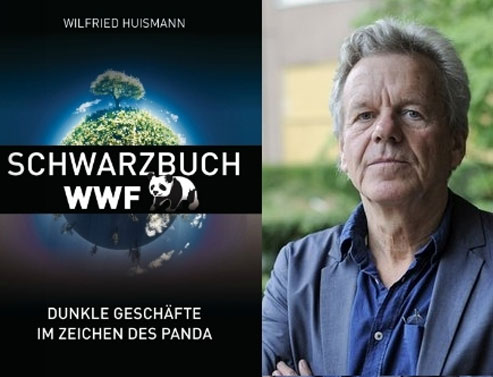
Michael Pollan “Das Omnivoren-Dilemma”
(Goldmann, ISBN 978-3442219339)
Dieses Buch ruft weder zum Vegetarismus auf noch hebt es den moralischen Zeigefinger. Pollan zeigt in diesem schriftstellerisch herausragenden Buch vielmehr wo unsere Nahrung herkommt, wie sie verarbeitet wird und was aus uns, unserer Umwelt und unserem Sozialverhalten dabei wird. Der Ansatz, viel Mahlzeiten-Typen zu ihren Ursprüngen zurückzuverfolgen, ist der Aufhänger für alle Recherchearbeiten. Dass Pollan Professor für Jornalismus ist, spricht aus jeder Zeile dieses Buches. Alleine die Recherchearbeit und der brilliante Stil sind so umwerfend gut, dass ‘Das Omnivoren-Dilemma’ einen Sonderplatz in jeder Buchsammlung verdient.
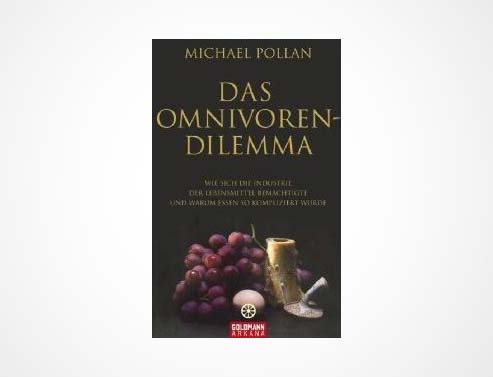
Michael Pollan “Lebens-Mittel”
(Goldmann, ISBN 978-3442218721)
“Lebens-Mittel” ist eine Abrechnung mit Diäten, Forschern, industrieller Nahrung, dem Wahn der Zusammenstezung und nahezu allen anderen Dingen, die wir heute landläufig mit dem Thema Ernährung in Verbindung bringen. Pollan plädiert für den gesunden Menschenverstand, der den allermeisten Menschen beim Thema Ernährung abhanden gekommen scheint. Es ist aber nicht nur ein Anti-Ratgeber-Buch sondern weist auch eine Fülle von spannenden Fakten auf.
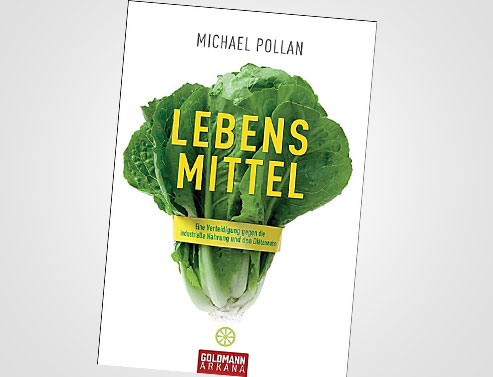
Angelika Krebs (Hrsg.) “Naturethik. Grundtexte der gegenwärtigen tier- und ökoethischen Diskussion”
(Suhrkamp, ISBN 978-3518288627)
Braucht unsere Natur unsere Ehrfurcht? Der Anthroprozentrismus der gängigen ethischen Konzepte ist der Weiterentwicklung unserer Ethik offenbar im Weg. In dieser Sammlung werden Texte pro und contra tierethischer und umweltethischer Haltungen gesammelt. Die Herausgeberin analysiert die Grundlagentexte vieler Philosophen und fasst diese diskursiv zusammen. Eine Übersicht mit kritisch-analytischer Attitüde. Das abschließende Votum der Herausgeberin für die anthroprozentrische Position überzeugt wiederum nicht, was die Qualität der Sammlung und der Arbeit aber nicht schmälert.
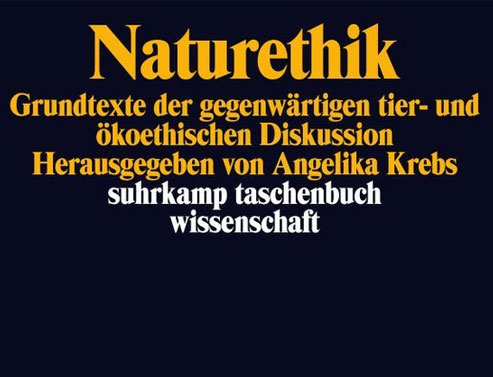
Martin Balluch “Tierschützer. Staatsfeind: In den Fängen von Polizei und Justiz”
(Promedia, ISBN 978-3853713310)
Balluch ist kein Schriftsteller, für seine Schilderungen der Ermittlungen gegen die österreichischen Tierschützer nach dem “Terrorismusparagrafen” 278a des österreichischen Strafgesetzes braucht er aber auch keiner zu sein. Der Leser verstummt fasungslos ob der Dinge, die in einem (angeblichen?) Rechtstaat möglich sind. Ein Grund mehr, die Dinge in Frage zu stellen, gegen die wir im Tierschutz und in der Tierrechtsarbeit kämpfen. Das Gemeinwesen verbaut sich langsam den Weg zurück in eine Gesellschaft, in der Veränderungen möglich sind. Der Kampf gegen das Leid von Tieren ist auch ein Kampf gegen die Unterdrückung, die im Alltag jeden trifft.

Beate Rost “Notizen zum Tierschutz”
(Make a book, ISBN)
Mitgefühl ist das zentrale Thema dieses Buches, ein Appell an den Leser, sich mit dem betroffenen Geschöpf zu identifizieren. Beate Rost gelingt dies mit ihren Erzählungen aus dem Alltag des Tierschutzes in einer unnachahmlichen Weise. Dieses Buch ist ein Manifest gegen Gleichgültigkeit und Gedankenlosigkeit.

Andreas Flury “Der moralische Status der Tiere”
(Karl Alber, ISBN 978-3495478790)
Flury analysiert treffsicher die Stärken und Schwächen der Axiologien von Salt, Singer und Regan und vergleicht diese miteinander. Bemerkenswert ist seine Kritik an der Axiologie der menschlichen Würde, die er den Analysen der Philosophen vorweg nimmt. Die Quintessenz von Flury ist im letzten Kapitel der Versuch einer eigenen Axiologie, die die Stärken und Schwächen der drei großen Theoriegebilde beachtet. Für eine tiefere Auseinandersetzung mit Tierethik ist dies ein wichtiges Buch, auch wenn die Axiologie von Flury etwas schwach und und unkonkret wirkt.
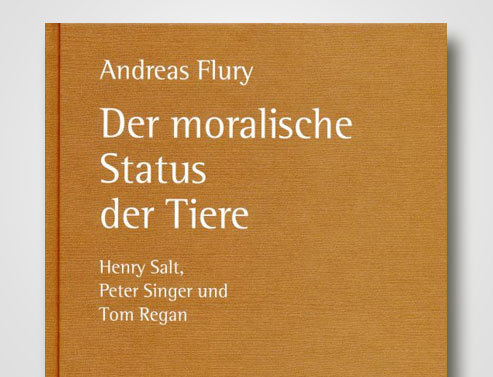
J. M. Coetzee “Das Leben der Tiere”
(Fischer, ISBN 978-3100108173)
Eine Erzählung, in der sich alles um die Frage nach der Würde der Kreatur dreht. Die Protagonistin, eine Schriftstellerin, verstört mit ihren kompromisslosen Haltungen die Intellektuellen Zuhörer mit einer Vorlesung. Literarisch sehr anspruchsvoll, ohne auch nur den Hauch einer Antwort zu geben. Eine grandiose Darstellung der oft anzutreffenden Hilfs- und Hoffnungslosigkeit. Was bleibt, ist die Erkenntnis, das wir alle Kreaturen mit Würde behandeln müssen. Oder besser: müssten.
